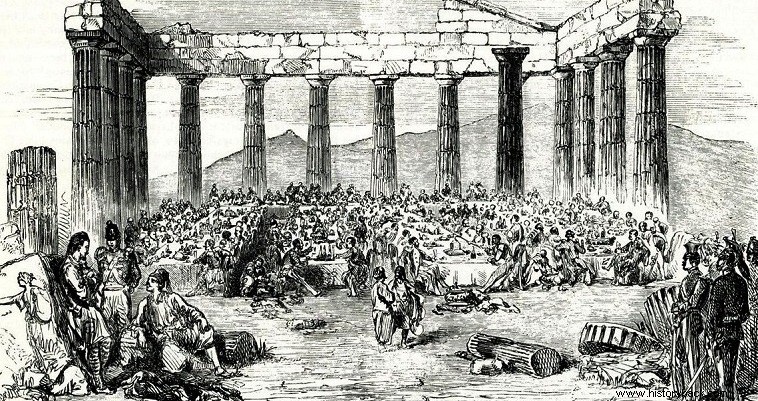
The Crimean War (1853-56) was a great test for Greece. The Greeks saw in his outbreak the opportunity to free the slaves still in the Turkish dynast homeland. But the great powers had a different opinion.
When, with the participation of Greek officers and volunteers from free Greece, successful revolutionary movements broke out in Epirus, Thessaly and Macedonia, British and French particularly pressured King Otto to stop all anti-Turkish actions.
But and Russia did not give convincing answers to the questions raised by Othon and recommended to Athens... neutrality. In the meantime, the British and French, intensifying their pressure, implemented a naval blockade, in effect, on Greece.
Having no other choice, Othon surrendered. On May 24, 1854, a French division landed in Piraeus. Then British troops landed. Two days later Othon proclaimed Greek neutrality and named Britain's chosen one Mavrokordatus prime minister.
The chosen one of France, Dimitrios Kallergis, the pioneer of the "constitutional revolution" of September 3, 1843, was placed in the military ministry.
Possession and cholera
Essentially, Kallergis exercised dictatorial power with the support of the French while Paris was even considering the dethronement of Otho. In the summer of 1854, the foreign occupation extended to the outskirts of Athens, while the provocations of the French in particular were continuous.
They reached the point of destroying the presses of the newspaper "Aeon", because it wrote against them, as if Greece was not an independent state, but an occupied country or their colony. At the same time came the cholera brought by the French soldiers.
The epidemic spread to Athens and about 3,000 Greeks died from the disease , 1/10 of the city's then population, that is.
The Crimean War formally ended with the Treaty of Paris in 1856. Greece was forbidden to participate in the relevant conference. The occupying forces also left Greece only in February 1857, after Athens agreed to accept the installation of an international economic control committee.
For Greece, the adventure in question resulted in the dissolution of the English and French parties and then Russia's shift towards the policy of Pan-Slavism and Russianism.
